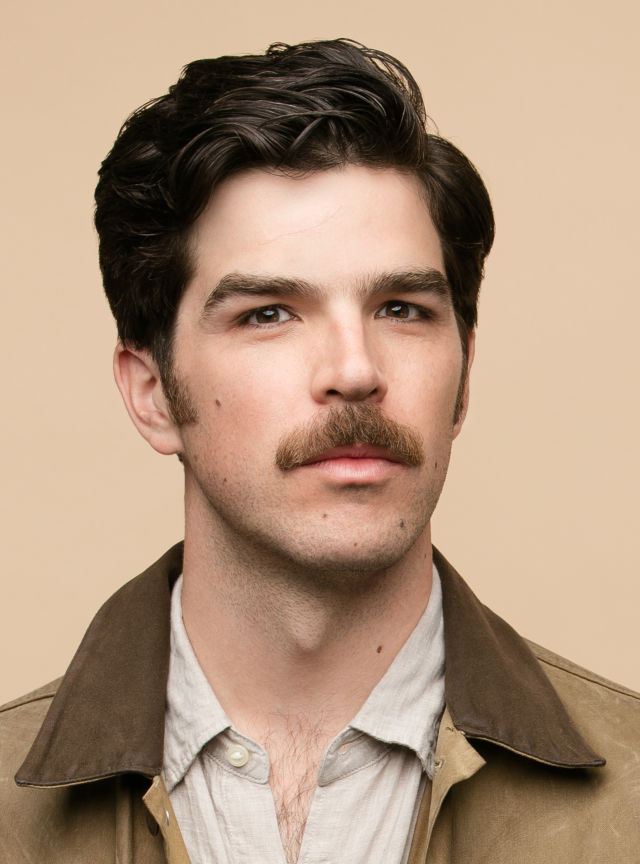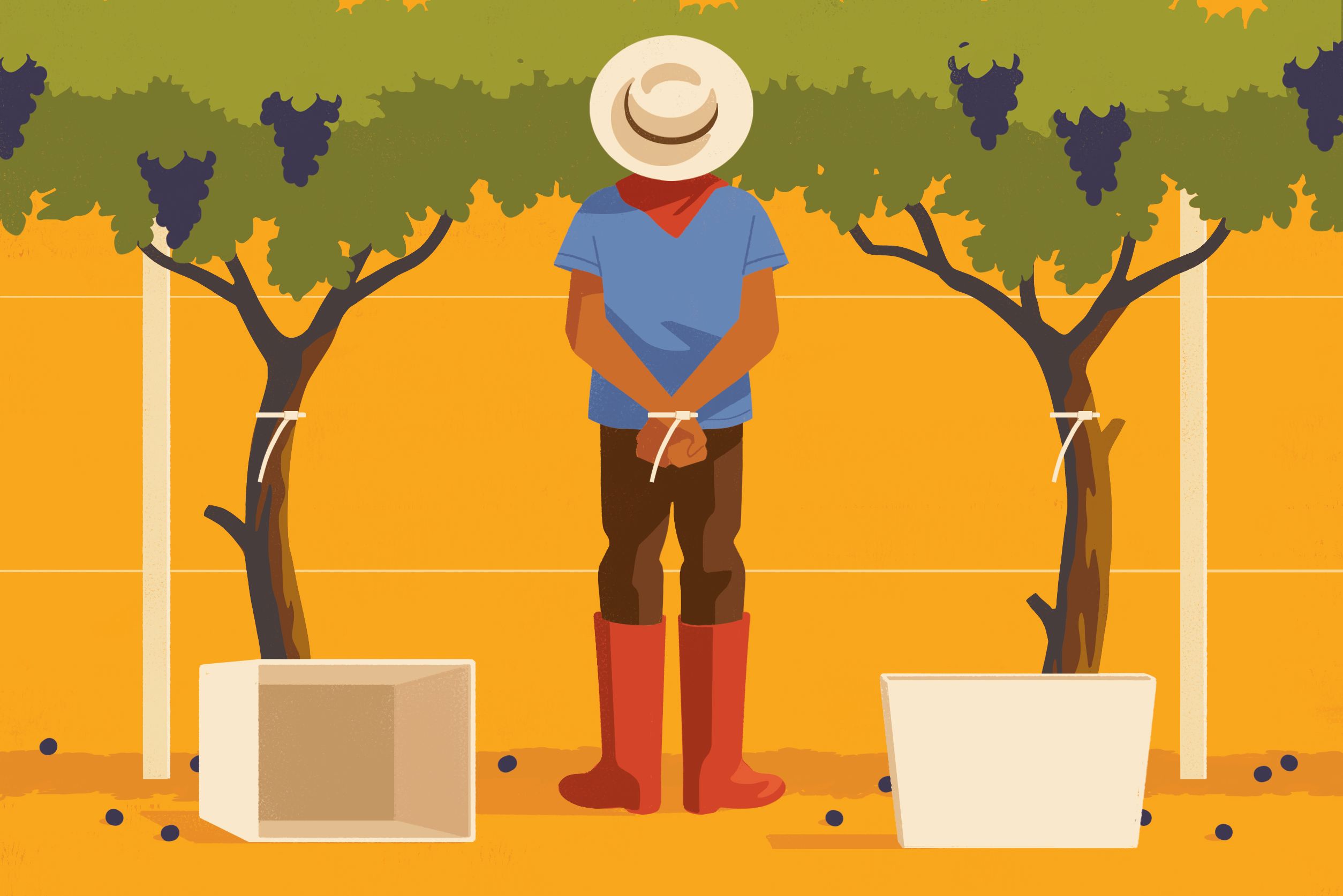An Ex-Border Patrol Agent on the Futility of Building a Wall

Francisco Cantú
Image: Courtesy Beowulf Sheehan
Francisco Cantú joined the US-Mexico border patrol to find answers. The grandson of a Mexican-American immigrant, he had studied immigration in college and wanted to understand the border better. But his experience led to more questions, and writing became a way to make sense of the nightmare-inducing horrors he witnessed from 2008–2012 while working in the field and in an intelligence center. This hobby-turned-compulsion became an MFA in nonfiction from the University of Arizona and led to his new book, The Line Becomes a River: Dispatches from the Border.
We all know that hundreds die every year trekking through the blistering desert and traversing the treacherous mountains dividing Mexico from the US. Cantú asserts that it’s difficult for readers to put a human face to the numbers and that border patrol agents who routinely see death—occasionally in a kill-or-be-killed situation—become desensitized. And, no, Trump’s wall isn’t going to deter those determined to risk their lives to come to the US. For Cantú, humanity needs to become part of policy. The self-proclaimed “bookstore nerd” will be at Powell’s City of Books at 7:30 pm Sunday, February 18.
From the Pacific Northwest, it can be difficult to visualize the southern border security. Could you describe the fencing currently along the border in the areas you patrolled?
A lot of people far away from the border don’t realize that there’s actually already a lot of walls and fencing along the border. There’s something like 700 miles of fencing, and we already had a sort of “build a wall” bill [the Secure Fence Act] go through Congress in 2006 because we were having the same debate then that we are now. In the area where I worked, we had 20-foot high steel mesh fencing for several miles, and it didn’t really stop much. People had figured out ways to pry open the panels from the ground and lift them up with hydraulic jacks high enough that they could drive vehicles underneath. For smaller stuff, they would just weld holes big enough for people to crawl through. I don’t think that’s an example of why we need a bigger, stronger barrier. I think that it shows us that no matter what barrier we put there people are going to find a way around it. It’s crazy to talk about spending all that money on a barrier that you know will be subverted.
Instead of talking about a new wall, what would be a better conversation to have?
A big thing missing from our conversation is acknowledging the border as a complex issue. We don’t talk about the issue with nuance. We’re attracted right now to these really simple-sounding solutions like, “Build a wall!” That’s really easy for people to imagine and it sounds like it would work, so to people who don’t live near the border and have little conception of the place and its vastness think that sounds great, so easy. But when I think about policy solutions, what I can say is the policy we have now is broken and it’s deadly and we haven’t had the political courage to change it for decades. It’s a policy of enforcement through deterrence, and that pushes people to cross in remote parts of the desert, pushes people out of the cities and the easier-to-cross areas. What we see is that people will cross whatever version of hell, no matter how rugged or mountainous and inhospitable. There has to be a policy solution that addresses this as a humanitarian crisis. Hundreds of people die every year crossing the desert. Border deaths went up last year even though crossings were down, and that’s got to change.
What can people do on a local level, say here in Portland, to join this conversation?
First and foremost, reach out to the people you know. So many of us, whether we’re aware of it or not, we know undocumented people, we know Dreamers, they’re part of our community. We need to listen to individual stories. We need to amplify the voice of the people who are experiencing this reality as opposed to the voices of politicians and policy makers with this agenda or that agenda.
I thought about this in my book. Much of the first two sections of the book are told from my point of view, a first-person narrator with a lot of privilege and power in his position as a law enforcement agent. So much of the book is coming to terms with people being complicit in an institution and enforcing policy that is violent. What made the biggest impression on me were the individual stories. When I have someone standing in front of me saying, “I’m here to work. Can you give me something to do while I’m waiting for the bus to come here at the station?” that’s so much different than hearing this platitude in the press, and when you see a dead body in real life and you have to explain to that man’s nephew and his teenage friend why they can’t stay with that body and why they can’t take that man’s body back to their village, that makes it personal. It puts a human face on all of these people. We have to work against the dehumanization of migrants. At a community level, that happens by feeding people and by listening people.
If someone asked you about whether he or she should become a border agent to really understand what’s happening there, what would you say?
I would probably say all the things my mom said. It’s not worth it. I’m someone who went into border patrol not because I wanted to kick people out of the country but because I wanted to have a broader understanding of the realities of the border. I was 23 when I joined the border patrol. I was incredibly naïve, looking back. I thought I would be able to help people in some small way, that I would be a force of good within the agency because I spoke Spanish, because I had lived in Mexico, and because I had book-learning from my academic background, that I knew what I was getting into. But the extent to which you have to disconnect from all of that to do the job everyday, the extent to which you’re giving these parts of your identity over to this larger institution is really perpetuating these deadly policies. I would say, “No, don’t do it. There are other ways.”
What are some of those other ways?
It’s so important to be part of something you believe in. Each person has to look at what reflects their values and partake in that. Now, I would make the decision to do nonprofit work, to work in my community. There are so many organizations that are working to fill the void that are being left by our policies. People’s efforts would be much better received there.
In the book, we hear about your friend José, who, after returning to Oaxaca for his dying mother, successfully crosses back into the US to rejoin his wife and three sons. How do José and his family feel about you sharing this very personal story in your book?
He wanted to be sure that he was safe and his family was safe. We took great care to make sure there were no details that would reveal who he was or where he was, but he said, “This is my story and I want people to know what people like me go through, because I’m a man who respects the law, I’m a man who understands all this.” He’s very politically and socioeconomically astute. I remember him saying to me, “I understand that the United States has laws and that it has to enforce those laws, and I respect that, but as a father, I cannot. My family values come first. My children are not dogs to be abandoned in the streets.” So often we’re given this black-and-white line: “You broke a law. You’re a criminal.” And he’s like, “Yeah, I know. I have to break that law. That law is inhumane. It keeps me apart from my children. I’m not going to bring my children [who are US citizens] to live in Mexico. I can’t do that as a good father. I can’t stand to not be part of their lives as a good father. Being a good father comes before the laws of this country.” For him, in a way, it’s civil disobedience. He felt that perspective was important and realizes his story is much like many other people’s stories.
Anything else you want to share?
When I think about this book being out in the world, there have been two things that have been strange. Certain people in the media have been almost more eager to portray me as a nice border patrol agent or to portray a good side of the border patrol. It’s almost easier to humanize one border patrol agent than to represent the message of the dehumanization of migrants. The other thing people have said in their reviews is that this has been “an empathetic look at the border,” or “it shows compassion for people crossing the border,” and I’ve become uneasy with the words “empathy” and “compassion” because we tend to pat ourselves on the back when we feel that way, but for the people crossing the border and the people living in fear because they’re undocumented, empathy and compassion don't really go far enough. One of the big questions that I don’t have an answer for is: how do we translate empathy and compassion into action?
Francisco Cantú
7:30 p.m. Sun, Powell's City of Books, FREE




